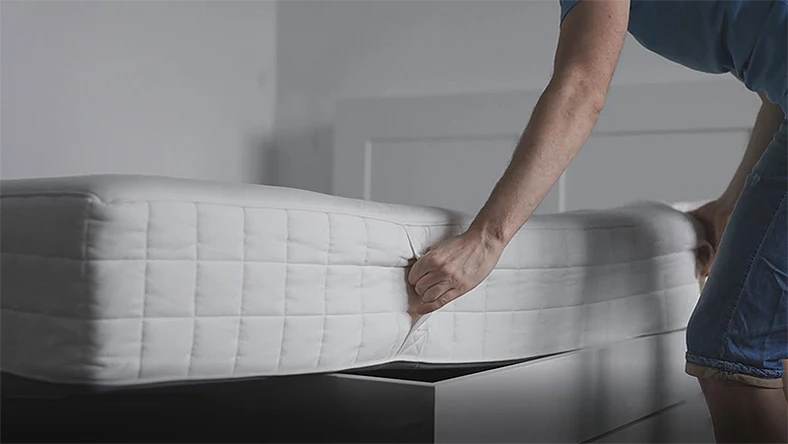How Often Should You Replace Your Mattress?

A good mattress is the foundation of healthy, restful sleep. But like all things, mattresses don’t last forever. Over time, they lose their support, comfort, and hygiene, which can affect the quality of your sleep and even your health. This raises the question: how often should you replace your mattress?
At Bedpoint.co.uk, we believe your mattress should be an investment in your well-being. Here’s everything you need to know about when to replace your mattress and the signs that it’s time for a new one.
General Guideline – 7 to 10 Years
On average, most mattresses should be replaced every 7 to 10 years. However, this depends on the type of mattress, how well it’s cared for, and the individual using it. High-quality mattresses may last longer, while cheaper options may need replacing sooner.
Factors That Affect Mattress Lifespan
1. Mattress Type
- Memory Foam & Latex – Typically last 8–10 years with proper care.
- Pocket Spring – Generally last 7–8 years but may wear out quicker if heavily used.
- Hybrid – Usually last 7–9 years, depending on the quality of materials.
2. Usage
If you use your mattress every night (and sometimes for naps or lounging), it will naturally wear out faster. Guest room mattresses, on the other hand, can last longer.
3. Care & Maintenance
Regular cleaning, rotating your mattress, and using a mattress protector can extend its lifespan.
4. Body Weight & Sleeping Position
Heavier sleepers or couples may experience faster wear and tear compared to lighter individuals.
Signs It’s Time to Replace Your Mattress
Even if your mattress hasn’t reached 7 years, you may need a new one if you notice these signs:
- Sagging or Lumps – Uneven surfaces affect comfort and support.
- Aches & Pains – Waking up with back or neck pain often means your mattress is no longer supportive.
- Allergies or Asthma – Dust mites and allergens build up in old mattresses, affecting sleep quality.
- Noisy Springs – If your mattress squeaks or creaks, the springs may be worn out.
- Poor Sleep Quality – If you toss and turn or wake up tired, your mattress may be the culprit.
Why Replacing Your Mattress Matters
- Better Sleep Quality – A supportive mattress ensures deeper, uninterrupted sleep.
- Improved Health – Reduced allergies, better posture, and less pain.
- Enhanced Comfort – A new mattress makes your bedroom feel fresh and inviting.
Final Thoughts
Your mattress plays a vital role in your daily comfort and long-term health. While the general rule is to replace it every 7 to 10 years, listen to your body and watch for signs of wear.
At Bedpoint.co.uk, we offer a wide range of high-quality mattresses designed to provide long-lasting comfort and support. Explore our collection today and give yourself the restful night’s sleep you deserve.


